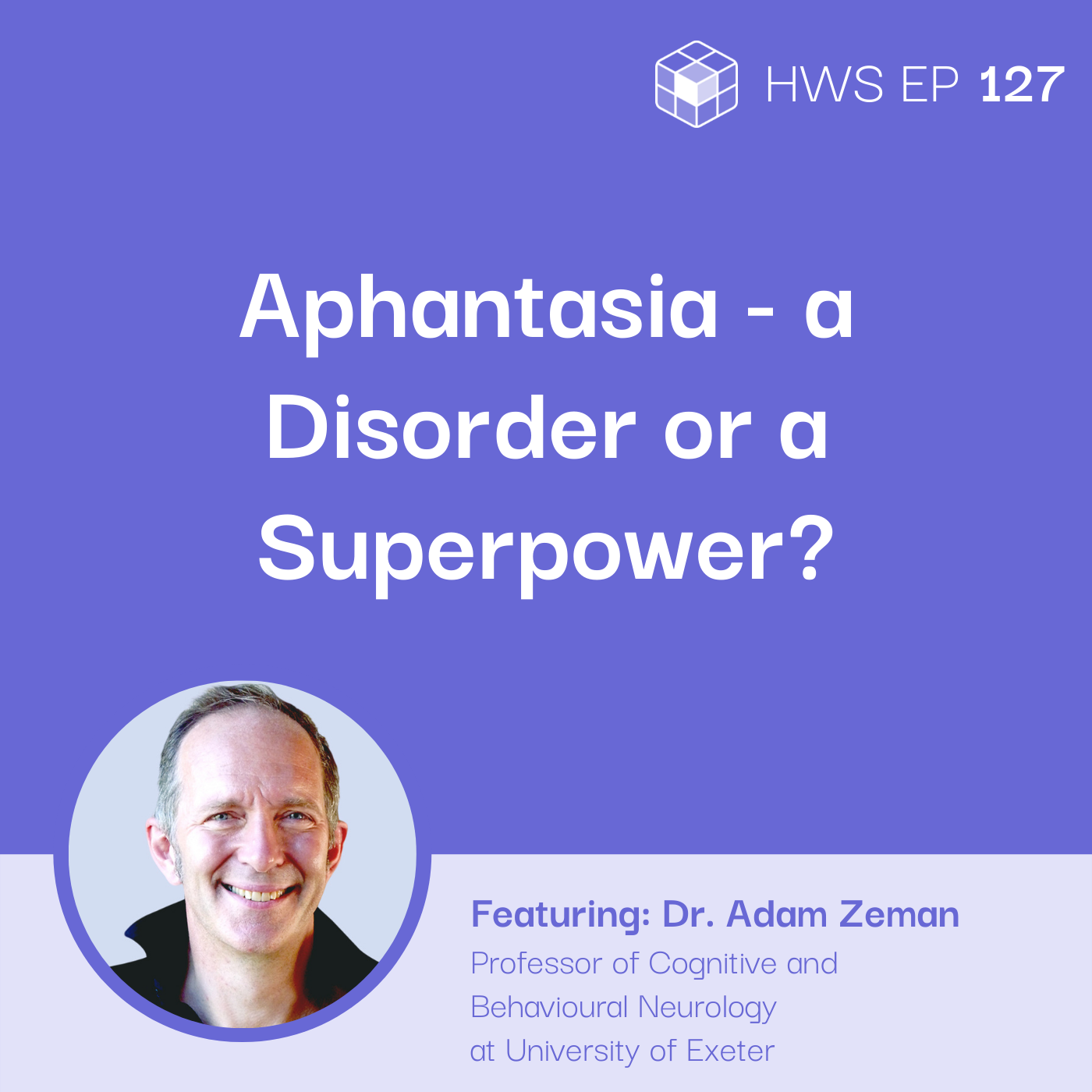Listen on:
Table of Contents:
What is Aphantasia? (According to Dr. Adam Zeman Who Coined the Term)
Aphantasia is the absence of mental imagery, specifically– at least at the start of our story– the absence of a mind’s eye. So, most people, when they call to mind an apple, or their front door, or the face of somebody they love, will have an experience which is somewhat visual. So in general, if one says to somebody, ‘imagine an apple,’ and you ask them what color it is, they’ll be able to give a definite answer because they would have called to mind an image, which is not generally quite as vivid as looking at an apple, but which gives them something with the experience of looking. And people with aphantasia are unable to do that.
Aphantasia – a Disorder or a Superpower?
There are some associations with what you might call conditions or deficits, but it’s clear that it’s also associated with quite a number of strengths. When we look to the occupation, we find that people with aphantasia were more likely to be working in scientific, mathematical, IT-related trades, suggesting aphantasia may confer some benefit to abstract thinking. It may be associated with a rather active personality, whether they’ve got a tendency to get things done, to fix things. And of course, you know, things need to get fixed. So it’s great that there are people around with those abilities. So I’m not sure that It should be thought of as a problem that needs to be fixed, but rather as a aspect of somebody’s makeup which has some disadvantages, but which also has some clear advantages.
Is Aphantasia Genetic?
If you have aphantasia, there’s a roughly tenfold increase in the chance that your first-degree relatives will have it. So, we’re hoping to hunt for some aphantasia genes or some visual imagery genes in future work. I suspect that there is at least a genetic influence, as there is on most psychological characteristics.
What Jobs Are People With Aphantasia Made For?
It does seem overall to be a bias towards science, maths, more abstract professions among people that have aphantasia, if you look at the whole group. But within the group, there are exceptions, many exceptions to that room. There’s a group of aphantasiac artists, and they’re really interesting. When one talks to them, one of the interesting things is that for many of them aphantasia actually seems to be a motivation to create visual art, because they can’t see things in their mind’s eye and we love the visual world.
Dr. Adam Zeman’s Recommended Resources:
This interview is part of the How We Solve podcast. To hear more from industry experts who are solving everyday business problems, check us out on Spotify, Apple Podcasts, and on our website.
About the guest

Dr. Adam Zeman
Dr. Adam Zeman is an expert in cognitive and behavioral neurology. He first coined the term aphantasia to describe the inability to visualize back in 2015 and is considered one of the world's foremost experts on imagery extremes. In this episode, he lays out to David– who has aphantasia– what he’s learned and what he still doesn’t know about how human create images in their minds.
How can people reach the guest:
Listen on:
